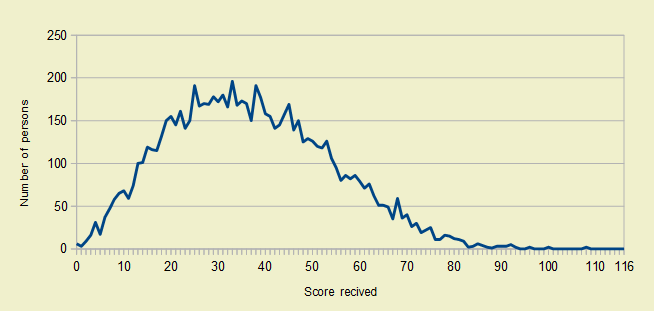Post by SPECIALEDITION on Mar 14, 2022 1:36:36 GMT
link
Introduction
The WPI is often credited as the first personality test. It was designed by the United States Army during World War I to identify solders at risk for shell shock. It measures one scale: emotional instability.
The test was very popular for many years but eventually fell out of style, seemingly in the 1930s.
Procedure
The WPI consists of 116 yes or no questions. It should take most people ten to fifteen minutes to complete.
Being one hundred years old, the inventory makes references that may not be immediately clear to modern takers, clarifying information has been added in brackets to this version.
Introduction
The test was very popular for many years but eventually fell out of style, seemingly in the 1930s.
Procedure
The WPI consists of 116 yes or no questions. It should take most people ten to fifteen minutes to complete.
Being one hundred years old, the inventory makes references that may not be immediately clear to modern takers, clarifying information has been added in brackets to this version.
"While the great World War exacted a frightful toll of death, destruction, and chaos, it yet served as a means of enriching the sum total of the world's store of knowledge. Industries worked at top speed, there was no slacking, the United States Government had little sympathy with procrastination. Men were being killed, land was being laid waste, and minds and bodies were being deteriorated under the strain. The Government called upon every available scientist to aid in the solution of its most pressing problems. And psychology, that bastard child of biology, responded to the call. Out of the hurried, frenzied chaos of psychological terminology, mental testing, and pure scientific fact, came two really great pieces of work: the intelligence tests known as the Army Alpha and Army Beta, and that test of emotional stability known variously as the Woodworth Psychoneurotic Inventory, the Woodworth Psychopathic Questionnaire, or the Woodworth Personal Data Sheet." (Papurt, 1930)

